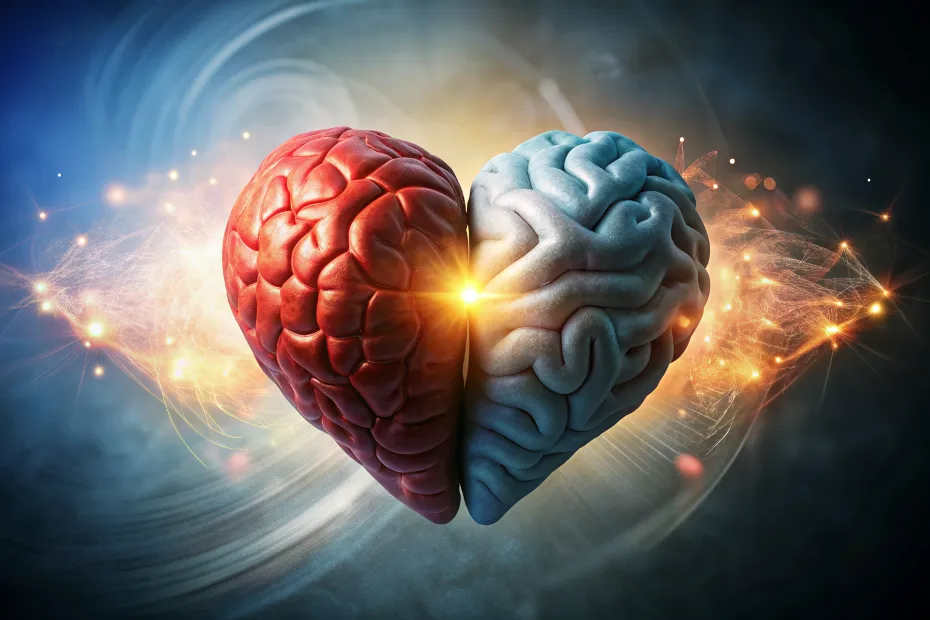In the realm of personal growth, emotional intelligence (EI) emerges as a cornerstone, significantly influencing our development, relationships, and overall well-being. This multifaceted skill set, encompassing the ability to recognize, understand, manage, and use emotions effectively, plays a pivotal role in navigating the complexities of daily interactions and challenges. So let’s delve into the essence of emotional intelligence and its profound impact on personal development and relationships.
Understanding Emotional Intelligence
Researchers Peter Salovey and John D. Mayer coined the term “emotional intelligence,” which Daniel Goleman popularized in his 1995 book. It involves a set of skills that help us perceive, understand, and manage emotions in ourselves and others. These skills are:
- Self-awareness: Recognizing one’s emotions and their impact on thoughts and behavior.
- Self-regulation: Managing one’s emotions to adapt to situations and achieve one’s goals.
- Social awareness: Understanding the emotions, needs, and concerns of others.
- Relationship management: Developing and maintaining good relationships, communicating clearly, inspiring and influencing others, working well in a team, and managing conflict.
The Role of Emotional Intelligence on Personal Growth
Emotional intelligence is integral to personal growth, as it affects various aspects of our lives, from decision-making to stress management. Here are key areas where EI makes a significant impact:
- Improved Self-Awareness: By understanding our emotions, we can identify what triggers negative feelings and why, leading to better coping strategies and self-improvement.
- Better Decision Making: Emotional intelligence allows for clearer thinking by managing emotions in decision-making processes, leading to more rational and less impulsive decisions.
- Enhanced Resilience: EI equips individuals with the ability to bounce back from adversity, fostering a growth mindset and resilience in the face of challenges.
Strengthening Relationships through EI
The role of EI in enhancing relationships cannot be overstated. It facilitates:
- Empathy and Understanding: By recognizing and understanding the emotions of others, we can empathize and forge deeper connections.
- Effective Communication: EI helps in expressing our feelings in a manner that is constructive and conducive to healthy relationships.
- Conflict Resolution: EI enables individuals to handle conflicts with sensitivity and maturity, ensuring relationships are not strained by misunderstandings or disagreements.

Developing Emotional Intelligence
Improving your emotional intelligence begins with a commitment to self-reflection and a willingness to grow. Here are practical steps to enhance your EI:
- Practice Mindfulness: Mindfulness helps in tuning into your emotions and the feelings of those around you.
- Seek Feedback: Regular feedback from friends, family, or colleagues can provide insights into your emotional responses and interactions.
- Manage Stress Effectively: Learning stress management techniques can help in regulating emotions and staying calm under pressure.
- Improve Communication Skills: Active listening and clear communication are essential in understanding and being understood by others.
The Benefits of High Emotional Intelligence
Individuals with high EI enjoy numerous benefits, including:
- Professional Success: Emotional intelligence is highly valued in the workplace for leadership, teamwork, and customer relations.
- Personal Well-being: A high EI contributes to better mental and emotional health, reducing the risk of anxiety and depression.
- Fulfilling Relationships: EI fosters healthier and more satisfying relationships, enhancing social interactions and connections.
Why is Emotional Intelligence (EI) sometimes referred to as EQ?
EQ stands for Emotional Quotient, similar to how IQ stands for Intelligence Quotient. It’s a term coined to represent a measurable unit of emotional intelligence. While the concept of EI existed before, the term EQ gained popularity after Daniel Goleman’s book “Emotional Intelligence: Why It Can Matter More Than IQ” (1995).
Here’s why EQ is a fitting term:
- Similarity to IQ: Just as IQ attempts to quantify intellectual ability, EQ aims to represent a measurable unit of emotional intelligence.
- Focus on Quotient: Both IQ and EQ use “quotient” to denote a score or measure of a specific ability.
- Catchy and Memorable: The term EQ is easily understandable and rolls off the tongue, making it a convenient way to refer to emotional intelligence.
However, it’s important to note that emotional intelligence is a complex construct and may not be easily captured by a single score. There are different models and methods for assessing EQ, and some experts argue against the limitations of a single number.
Alternative ways to refer to emotional intelligence:
- Emotional Literacy
- Emotional Competency
- Social and Emotional Intelligence (SEI)
Ultimately, the most important aspect is understanding the concept and the skills that fall under the umbrella of emotional intelligence. Whether you call it EQ, EI, or something else, developing these skills is crucial for personal growth and strong relationships.
The journey of personal development is enriched by the cultivation of EI. As we enhance our ability to understand and manage emotions, we unlock our potential for growth, resilience, and meaningful relationships. The significance of EI in our lives underscores the importance of embracing emotional learning as a lifelong endeavor. By investing in our EI, we pave the way for a fulfilling and harmonious life, both personally and professionally.
Incorporating EI into our personal development toolkit not only propels us towards achieving our full potential but also enriches our interactions with the world around us. As we navigate the challenges and opportunities of life, let us remember the power of emotional intelligence as a catalyst for profound personal transformation and the building of stronger, more compassionate connections with others.
FAQs
- Why is emotional intelligence important for personal development? EI enables individuals to understand and manage their emotions effectively, fostering personal growth and resilience in the face of adversity.
- Can EI be learned or improved? Yes, EI is a skill that can be cultivated through practice, self-reflection, and mindfulness techniques.
- How does emotional intelligence impact relationships? EI enhances interpersonal relationships by promoting effective communication, empathy, and conflict resolution skills.
- What role does EI play in the workplace? In the professional realm, EI is associated with leadership effectiveness, teamwork, and job performance.
- How can I assess my emotional intelligence? Various assessments and self-assessment tools are available to gauge one’s EI levels, providing valuable insights for personal development.

